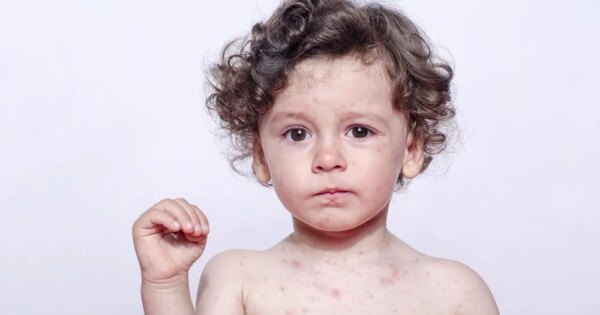When your child is old enough to stay home alone for the first time, it’s both a relief and a cause for stress. After years of babysitters, having the option of a child taking care of themselves, or even their siblings, is a welcome reprieve: no payment and no driving home at the end of the night! There are no specific federal laws with regards to age minimums for staying home alone. Some states have a minimum age requirement as young as 7 and as old as 14, while others have no legal requirements whatsoever. In terms of leaving them home to babysit siblings, or other kids, the only law in place is one which prohibits kids under 16 from babysitting during school hours (unless they get permission from the school principal). Also, bear in mind that as a parent you are legally responsible for anything that may happen to a child under 16 in your house. So before you start making too many plans, here are the top 12 questions to ask before leaving kids home alone.
12. Do you want to stay home alone?
Some kids can’t wait to be left on their own, while others may be filled with anxiety just thinking about it. Ever presume to know what your child is thinking. Instead, ask them how they feel about being left home alone, either by themselves or with other children. Sometimes the children who act the toughest are not necessarily the bravest. Conversely, the child who may appear needy may still have the maturity level to stay home solo. For the first few times you leave your child alone, stick with a short outing until you know what they can handle and what they’re comfortable with.
11. What is an emergency?
Not finding what you’re looking for on TV is not an emergency. Smelling something burning, falling down and hurting yourself could be. Explain to your kids that a real emergency is a situation that requires immediate assistance from the police, fire department or ambulance. Ensure they know how to call 9-1-1 and remind them that when in doubt, call. If they call in error, tell them not to hang up but, rather, to stay on the phone and then tell the dispatcher that everything is OK. If they hang up beforehand, emergency services may send a police officer or fire truck to your house to confirm everything is OK.
10. What is your address and phone number?
As parents, we often take it for granted that our children know their own addresses and phone numbers. Don’t. Some kids may know their parents’ mobile numbers, but have no idea what the home phone number is. Make sure they know their address in case there is an emergency, including the zip code. It’s always a good idea to keep a list of emergency numbers, just ensure you should your child where the list is rather than presuming they know.
9. What about the pets?
When a child is left home alone, we often presume that any family pet won’t be a part of the equation. This is not necessarily the case. Ask your child if they have any ideas what to do, especially with a cat or dog that wants to go outside. Make sure kids understand that they are not just alone, but also in charge of the pets in their care. As a precaution, it’s always best to take the dog out, or let the cat in, before you leave the house. Especially in the early days of staying home alone.
8. Do you plan to cook?
For many kids, the moment their parents leave the house, they find themselves suddenly overcome with hunger. It’s always a good idea to feed the kids before you leave, and point out the snacks that are available. Chips, cookies, cut up fruits and veggies are generally the best choices for kids on their own. You’ll want to let them know that the stove is strictly off limits. Unless they are totally familiar with the microwave, nix that too. If you have a secret candy stash, your children will definitely find it when you’re gone. So either allocate a small amount, or prepare for a potential sugar rush. Or find a better hiding spot.
7. What are the rules?
Before you leave, set out a strict set of simple rules for your child. And then make him or her repeat it back to you. Whether it’s TV/Internet, clean-up or even knowing not to take a bath, kids need to understand what is expected of them while you are out. You don’t want to come home to a child playing a videogame in the bathtub while eating, only to tell you they didn’t know it wasn’t allowed! Be clear, be concise, and be sure to let them know there will be consequences for rule breakers.
6. Should you answer the phone?
Be clear about when to answer the phone, and what to say. Many people have call display features on their phones so it is easy to know who is calling. The best bet is to let your kids answer if it’s a grandparent or, obviously, a parent, but to let anyone else go to voicemail. In the event that they do answer the phone, kids should know never to reveal to anyone that their parents aren’t home.
5. Should you answer the door?
For the most part, the answer to this question is an emphatic “no”! That said, there are some exceptions. For older children, or those babysitting others, sometimes food may be delivered (prepaid is best), or perhaps a friend is coming over. No matter who may be at the door, it is advisable to always look through a window or peephole to see who is there, and ask who it is. If it is anyone whose visit has not been pre-arranged, then the best bet is to steer clear of the door and ignore it completely.
4. When can you leave the house?
Some kids may want to play outside in the backyard or in front on the driveway. Make sure to set out the rules before you leave. For the first few times a child is left alone, it’s recommended that they simply stay put inside the house. Between locking and unlocking doors, possibility of injuries and, of course, stranger danger, the easiest course is to stay inside and save the outdoor play for another day.
3. Do you know first aid?
Some 12-15 year olds are eligible to take a babysitting course, either through their school or at a local community centre. These programs often include a first aid crash course. If you child is younger or has never completed the course, then it’s advisable for them to steer clear of medicine cabinets and call a parent to ask for help. In worst-case scenarios, they should call 9-1-1 for help.
2. What time is bedtime?
If you’re leaving your child at home at night, or if your child is babysitting younger siblings, be clear about bedtime. Some kids need to stay awake until their parents come home, while others have no trouble going to sleep. No one wants to return from a wild night out to find their kids waiting up for them. Your best bet is avoid the issue completely by limiting how long you are out until your child is old enough to handle putting themselves to bed. If your child is old enough to babysit, they will probably “allow” younger children to stay up later than usual, but should hang out, read a story, or play with younger kids until they are ready – and able – to fall asleep.
1. What if you get scared?
If your child gets scared when you go out, remind them to call you anytime. If you know you’ll be unavailable, leave them with a list of family members or friends who can reassure them. Before you leave the house, ask them what their plans are, what they intend to watch on tv, etc. The last thing you want is for your child to channel surf and land on a scary show or horror film. Some kids find it comforting to hang out in their parents’ room until the parents come home.















